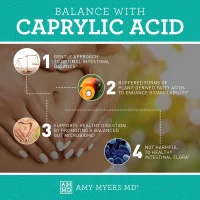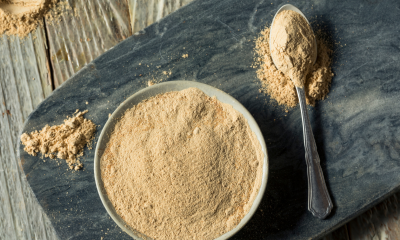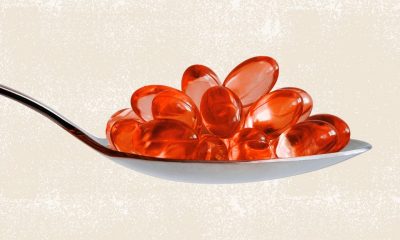Uncategorized
collagen benefits for men

Introduction:
Collagen is a protein that plays a crucial role in maintaining the structure and strength of various tissues in the body, including the skin, bones, joints, and muscles. While collagen is often associated with women and skincare, it offers numerous benefits for men as well. This article explores the potential advantages of collagen supplementation for men’s health, athletic performance, and overall well-being.
Understanding Collagen:
Structural Protein
Collagen is the most abundant protein in the body, accounting for a significant portion of our connective tissues. It provides structural support and elasticity to the skin, strengthens bones and joints, and contributes to muscle function. Collagen is produced naturally by the body but tends to decline with age, leading to various signs of aging and potential health concerns.
Potential Health Benefits:
Skin Health and Appearance
Collagen plays a vital role in maintaining skin elasticity, hydration, and firmness. As men age, they may experience a gradual loss of collagen, leading to the appearance of fine lines, wrinkles, and sagging skin. Supplementing with collagen may help improve skin health by promoting collagen production, reducing visible signs of aging, and enhancing skin tone and texture.
Joint and Bone Support
Collagen is a key component of cartilage, the flexible tissue that cushions and protects joints. In men, maintaining healthy joints is essential for physical activity, athletic performance, and overall mobility. Collagen supplementation has been shown to support joint health, reduce joint pain and inflammation, and potentially slow down the progression of age-related joint conditions, such as osteoarthritis.
Muscle Recovery and Performance
Muscle health and recovery are crucial for men who engage in physical activities and exercise regularly. Collagen contains specific amino acids, such as glycine and proline, that support muscle repair and growth. Supplementing with collagen may aid in muscle recovery, reduce exercise-induced inflammation, and enhance athletic performance.
Hair Growth and Strength
While hair loss and thinning are commonly associated with men, collagen may offer benefits for hair health as well. Collagen provides structural support to the hair follicles, promoting hair growth, strength, and thickness. By maintaining healthy collagen levels, men may experience improved hair quality and potentially reduce the risk of hair loss.
Gut Health and Digestion
Collagen is beneficial for gut health and digestion. It helps strengthen the lining of the gastrointestinal tract, supporting healthy digestion and nutrient absorption. Collagen supplementation may aid in soothing digestive issues, such as leaky gut syndrome, and promoting a healthy gut microbiome.
Safety and Precautions:
Quality and Allergies
When considering collagen supplementation, it is important to choose high-quality products from reputable sources. Collagen supplements are typically derived from animal sources, such as bovine or marine collagen. Individuals with known allergies or sensitivities to these sources should exercise caution and opt for collagen alternatives or consult with a healthcare professional before starting supplementation.
Conclusion:
Collagen offers numerous benefits for men’s health and well-being. From promoting skin health and reducing signs of aging to supporting joint function, muscle recovery, and gut health, collagen supplementation can be a valuable addition to a man’s wellness routine. By supporting the body’s natural collagen production, men can experience improved skin appearance, enhanced athletic performance, joint support, and overall vitality. As with any supplement, it is advisable to choose high-quality collagen products and consult with a healthcare professional to determine the most appropriate dosage and assess individual needs.
Uncategorized
10 Benefits Of Sesame You May Not Know About

Discover the 10 Benefits Of Sesame You May Not Know About.
The main benefits of sesame lie in its high antioxidant content and it is a rich source of vitamins and minerals, including magnesium, phosphorus, iron, omega 6, calcium, vitamins B and E, which play several important roles in overall health.<img class="i-amphtml-intrinsic-sizer" style="box-sizing: border-box; max-width: 100%; display: block !important;" role="presentation" src="data:;base64,” alt=”” aria-hidden=”true” /><img class="i-amphtml-intrinsic-sizer" style="box-sizing: border-box; max-width: 100%; display: block !important;" role="presentation" src="data:;base64,” alt=”” aria-hidden=”true” />

The sesame seeds also called sesame seeds are derived from an unremarkable plant of the genus Sesamum and bear the scientific name of Sesamum indicum. Sesame seeds are considered the oldest oilseed crop in the world and have been cultivated for more than 3,500 years.
There is evidence of its native forms in both Africa and India. It is extremely hardy and grows in places where many other crops do not, which is why it persisted throughout the ages. Even though it is a seed, it can still bother people with allergies, and it has a distinctly nutty taste.
Many of the health benefits are derived from the oils, which are found in higher concentrations in sesame seeds than in any other oilseed crop in the world. The sesame plant is no more than 3 feet tall, and the seeds are released from small pods along the axes of the plants.
The seeds are very small, only 3-4 mm long and 2 mm wide, yet 3.85 million metric tons are produced each year. They come in a wide variety of colors, depending on the variety or strain of the sesame plant.
The seeds can be purchased shelled or shelled. They are commonly added to salads, as an ingredient or topping for bread and grain products, cookies, sushi, cakes, soups, fish and meat bread, and a wide variety of other applications. You can find sesame seeds in almost every cultural kitchen in some form.
Health Benefits of Sesame
The seeds are widely spread throughout the world due to their availability and pleasant taste. The wide range of sesame health benefits is explained in more detail below.
1.- Reduce hypertension
The benefits of sesame have been linked to a reduction in hypertension in several research studies, which lowers the stress on your cardiovascular system, and helps prevent various heart conditions.
Additionally, magnesium has long been known as a vasodilator (an agent that lowers blood pressure) and sesame seeds store this essential mineral, which contains up to 25% of your daily need in a single serving.
2.- Prevent cancer
With the wide range of essential vitamins and minerals in sesame seeds, it is no surprise that it is associated with a reduced risk of cancer.
Beyond the role of these common minerals, including the powerful anti-carcinogenic effects of magnesium, another of the benefits of sesame is that it also contains phytate, a rare contraceptive compound that works as an antioxidant and reduces the effects of free radicals.
The dangerous by-products of cellular metabolism have been linked to many forms of cancer and various other conditions such as heart disease, premature aging, and cognitive malfunction.
Sesame seeds have also been linked to decreased leukemia, breast, lung, pancreas, colon, and prostate cancer.
3.- Diabetes Management
Another of the benefits of sesame is that it contains magnesium, and is connected with reducing the chances of diabetes and managing symptoms in patients who have already developed the condition.
Additionally, sesame seed oil has been shown to positively affect the impact of various diabetes medications such as glibenclamide in patients suffering from type 2 diabetes.
It improves the functionality of this medicine and also regulates the levels of insulin and glucose in the body, thus helping to control the symptoms of diabetes.
Sesame regulates insulin and glucose levels in the body.
4.- Increase bone health
The impressive levels of essential minerals like zinc, calcium, and phosphorous found in sesame seeds can be a great boost to your body’s bone health.
These minerals are integral parts in the creation of new bone matter, and the strengthening/repair of bones that can be weakened by injuries or the appearance of conditions such as osteoporosis.
5.- Improve digestion
These little seeds contain a significant amount of fiber. Fiber is an important element in healthy digestion, as it increases bowel movements and helps them move through the digestive tract, as well as stimulating peristaltic movement as food moves through the smooth intestine.
This can reduce adverse conditions like constipation, as well as diarrhea, while simultaneously protecting the health of your colon and reducing the chances of gastrointestinal diseases and cancer.
Fiber also works for your heart, removing dangerous LDL cholesterol from your arteries and blood vessels, thus protecting against atherosclerosis, heart attacks, and strokes.
6.- Improve oral health
Perhaps the most notable effects of sesame benefits are its powerful effects on oral health.
The process is called oil pulling, in which certain amounts of sesame seed oil around the mouth can have a strong antibacterial and astringent effect on all aspects of oral health.
It is also closely associated with reducing the presence of the Streptococcus bacteria, a common bacteria that can wreak havoc in your oral cavities and other parts of your body.
Sesame has powerful effects on oral health
7.- Reduce inflammation
The high copper content is another benefit of sesame as it has several valuable functions, including reducing inflammation in the joints, bones, and muscles, thereby reducing pain associated with arthritis.
In addition, copper is an essential mineral for strengthening the walls of blood vessels, bones, and joints.
Finally, copper is necessary for the proper absorption of iron, a key component of hemoglobin. Therefore, adequate copper content in the body maximizes circulation and ensures that the organ systems throughout the body receive enough oxygen to function properly.
8.- Radiation protection
One of the unusual organic compounds in sesame seeds is called sesamol, and it has been associated with protecting DNA from the harmful effects of radiation.
This radiation could come from accidental sources or cancer treatment with chemotherapy and radiation therapy.
By protecting DNA from mutation due to radiation, sesame seeds can increase strength and reduce the chances of contracting other forms of cancer due to cell mutation.
9.- Skin and hair care
As mentioned, sesame seeds contain high levels of zinc, a vital component in collagen formation, which strengthens muscle tissue, hair, and skin.
Additionally, sesame seed oil has been shown to reduce the appearance of burns and marks on the skin, as well as the signs of premature aging.
10.- Activate metabolic function
Other benefits of sesame are that they contain a large number of proteins, which are broken down and reassembled as components of proteins that are usable by the human body.
This adds to overall strength, healthy cell growth, mobility, energy levels, and metabolic function.
Words of caution
Consuming too much sesame seeds can cause irritation to the stomach and colon.
They can also show up on drug tests because they contain a small amount of THC. However, both occur when consumed in very large quantities.
Uncategorized
6 benefits of caprylic acid

Table of Contents
Discover the 6 benefits of caprylic acid.
The various benefits of caprylic acid are widely known, as it is a type of beneficial saturated fatty acid that has antibacterial, antiviral, antifungal, and anti-inflammatory properties.
It is found in healing foods such as coconuts and coconut oil, cow’s milk, and breast milk, and has been linked to the prevention of urinary tract infections, bladder infections, Candida viruses, sexually transmitted diseases, and oral infections such as gingivitis and many other conditions.
As one of the three main fatty acids (along with capric acid and lauric acid) found in coconut oil, caprylic acid has become widely known for its antifungal effects, especially in maintaining the digestive organs and reproductive organs, including the bladder and bowel and urethra – functioning properly.
One of the most popular uses for caprylic oil, whether consumed as part of food or taken orally in tablet form, is to prevent the overgrowth of yeast-like fungi that can live and grow in your intestines.
As a saturated fatty acid, caprylic acid (also sometimes called octanoic acid) contains eight carbon atoms, making it a medium-chain fatty acid (MCFA).
Although more research is needed to confirm its potential uses, research suggests that caprylic acid has positive applications for fighting inflammation, cancer, and age-related cognitive decline including Alzheimer’s disease, autism, and circulatory problems.
1.- Contains antibacterial, antiviral, and antifungal properties
As a natural immune booster, caprylic acid is commonly used as an ingredient in topical fungicides, household cleaning products, perfumes, and dyes.
Considering all the known uses for coconut oil out there, it’s not surprising that caprylic acid is gaining popularity on its own for healing the body inside and out.
Taken internally, it helps naturally reduce yeast growth within the gastrointestinal tract while helping beneficial bacteria to thrive.
At the same time, caprylic acid is completely natural and does not pose the same risks as harsh antibiotics or chemical treatments.
While antibiotics can kill all bacteria in the gut, both good and bad, caprylic acid can do the opposite, helping to prevent an imbalance between the presence of various bacteria.
A higher population of “good bacteria” in the gut increases immune function and has numerous implications: lower inflammation levels, less risk of allergies, better brain function, better hormonal health, lower risk of obesity, and much more.
Because gut health is intrinsically linked to many functions throughout the body, the effects of caprylic acid can help fight headaches, depression, fatigue, diarrhea, bloating, vaginal yeast infections, and heartburn.
To further enhance its effects, some experts also recommend incorporating natural immune enhancers such as probiotic foods, oregano oil, and omega-3 fish oil supplements along with caprylic acid to help repopulate the gut with healthy bacteria, reduce inflammation, and restore a healthy “gut”. -The brain connection.
2.- Fight against Candida
When it comes to fighting candida naturally, look no further than caprylic acid. Candida is a condition that occurs when an overgrowth of yeast fungus develops in the intestine.
It is very common, especially among women, and is associated with uncomfortable Candida symptoms such as bloating, constipation, fatigue, irritable bowel syndrome, depression, and sugar cravings.
Because caprylic acid acts as a natural yeast-fighting agent, it is believed that it can penetrate the cell membranes of candida yeast cells and cause them to die, detoxifying the digestive tract and speeding up the healing process.
Researchers have found that orally administered caprylic acid rapidly reduces symptoms associated with viral and fungal infections such as Candida and Chlamydia.
3.- Helps prevent and treat yeast infections
Aside from candida, yeast can cause other types of internal or external yeast infections that appear on the skin, genitals, toes, and elsewhere; caprylic acid benefits can help get rid of yeast infections such as toe fungus, mouth infections, vaginitis in women, itching in men, and ringworm are examples of yeast infections that can be prevented o be treated with few or no side effects
4.- Treats skin infections and acne
Considering the popularity of coconut oil’s various uses for the skin, it’s no surprise that caprylic acid’s strong antibacterial and antimicrobial effects have been shown in many human and animal studies to help improve infections that appear on the skin.
Caprylic acid, along with its derivatives called monocaprylin and sodium caprylate, are capable of fighting bacteria that live on the skin and cause infections, including Dermatophilus congolensis and acne.
Dermatophilosis is a skin disease that can affect many species of domestic and wild animals such as horses and cattle, as well as humans.
It causes a bacterial infection that forms painful dry crusts on the skin and can be irritating and embarrassing, similar to eczema and acne.
Coconut oil, the best naturally occurring source of caprylic acid, is known to naturally improve acne and reduce skin inflammation.
This is why coconut oil is a great natural skin moisturizer in addition to homemade scrubs or lotions, facial cleansers, and shaving balm. In addition, it has beneficial properties to improve hair health when used in the form of coconut oil.
5.- Helps treat inflammatory digestive disorders
Medium-chain triglycerides (MCTs or MCT oil) are often given to patients with Crohn’s disease or short bowel syndrome.
Until recently, little was known about the effects of MCFA and MCT on intestinal inflammation, but studies now suggest that these fatty acids help suppress the secretion of inflammatory cells and enzymes, reducing Chrohn’s symptoms such as pain, swelling, bleeding, and intestinal problems.
MCTs appear to help protect the epithelium, a line of defense that lives in the intestine and acts as a boundary against a variety of substances in the intestines, including toxic residents and pathogenic microorganisms.
In people who have inflammatory conditions where a healthy mucosal barrier is lost, including those with Crohn’s disease, their intestinal epithelial cells secrete a wide range of cytokines after stimulation with pro-inflammatory cytokines or bacterial products.
Although the precise mechanism that leads MCTs to suppress this process is not yet fully understood, it is believed that they help to inhibit inflammatory cytokine gene inhibition and thereby decrease the body’s immune response which further aggravates the intestinal lining.
6.- Reduces the risk of resistance to antibiotics
Concerns about antibiotic resistance around the world are on the rise, prompting health experts to seek alternative natural therapeutic approaches to antibiotics for the treatment of infections in both humans and animals.
One of the main concerns with using chemical antibiotics to treat infections or viruses is that it increases the risk of antibiotic resistance over time.
As pathogens and harmful bacteria in the body become resistant to drugs and mutate to survive, we have to turn to other options to treat disease: sometimes these options come at a much higher price, require a longer duration, and cause side effects. serious side effects.
A variety of safe and natural free fatty acids and their monoglyceride derivatives have been reported to exert antibacterial and antimicrobial activity against a wide range of microorganisms, including the benefits of caprylic acid and its monoglyceride and monocaprylin compounds. These seem to inactivate common mastitis pathogens, making them a great supplement.
Considerations
In addition to obtaining caprylic acid from whole food sources, now that supplements are becoming more widely available, there is no evidence that there is any unique nutritional requirement for caprylic acid, which is why, until now, there is no recommended intake pattern for people; however, most professionals assure that you should not exceed a thousand milligrams, that is, that if you consume it, you should not exceed three times a day to obtain optimal results.
If you are not used to taking caprylic acid, start slowly to prevent stomach pains; The most recommended by specialists is the consumption of a 500 mg capsule once or twice a day, especially if you are starting its consumption, then you can increase the dose without any problem, ideally, it will improve the condition you are experiencing.
Oddly enough, it is estimated that the progressive increase in the dose is an excellent option to effectively eliminate the yeast, in addition, your system will not be compromised to produce even more of an autoimmune reaction.
Caprylic acid is generally recognized as safe when taken in capsule form, and few to no side effects have been reported at these levels; when ingested in large doses or quantities, and mixed with other medium-chain triglycerides, it can give rise to a range of gastrointestinal problems in a considerable number of individuals, but this is not common and is generally not a cause for concern.
Another consideration that you should have when taking caprylic acid capsules is that they should be avoided during the lactation process or when there is suspicion of pregnancy since they can cause some nausea and aggravate existing digestive problems.
Uncategorized
12 Health benefits of rue

Table of Contents
-

 Food1 year ago
Food1 year ago10 + Benefits of carrot juice and side effects
-

 Benefits4 months ago
Benefits4 months agoThe Benefits of Joining Gym Lumolog – Improve Your Fitness & Health
-

 Health1 year ago
Health1 year ago50 Super Healthy (And Very Often Cheap) Foods
-

 Health1 year ago
Health1 year ago5 Shocking health benefits of kinkeliba and side effects
-

 Food1 year ago
Food1 year ago8 shocking benefits of leek juice and side effects
-

 Health1 year ago
Health1 year agoBenefits of guava leaves Sensually
-

 Weight Loss1 year ago
Weight Loss1 year agoChaz Bono weight loss secret
-

 Health1 year ago
Health1 year ago15 Benefits of lipton tea and side effects












